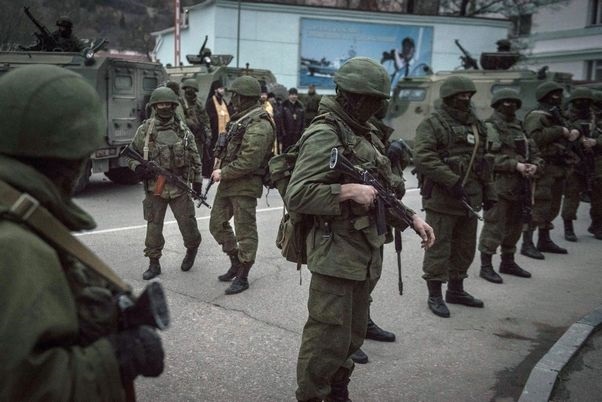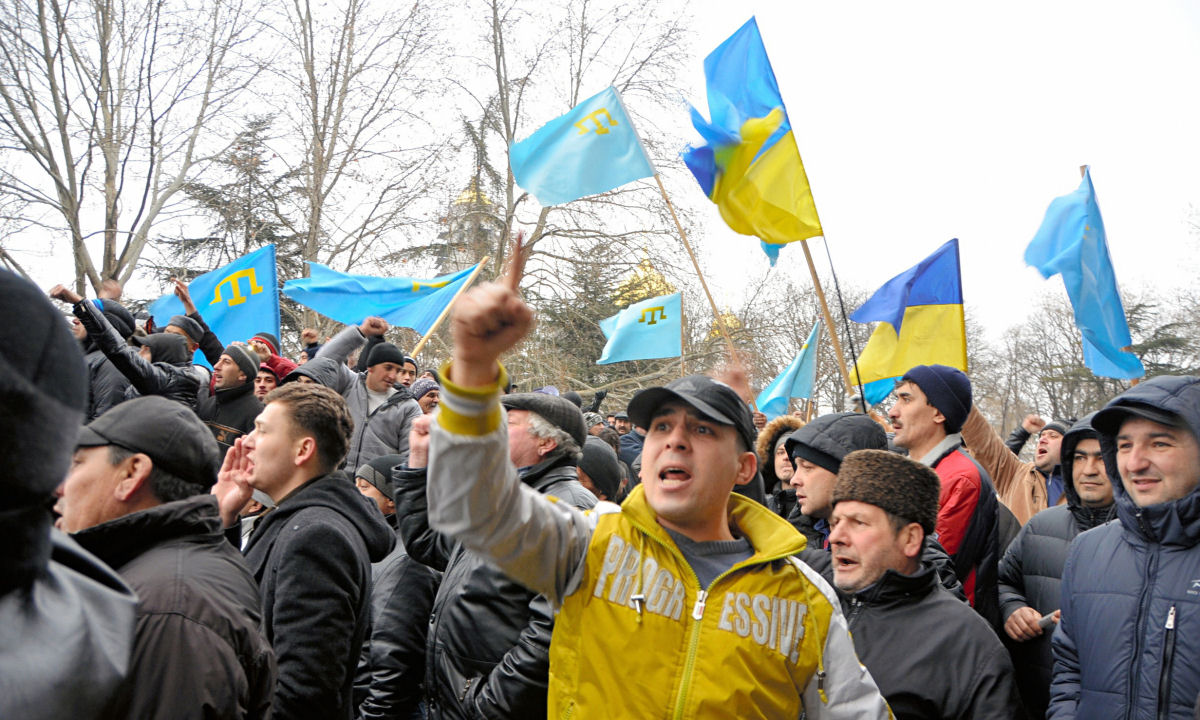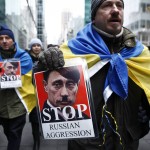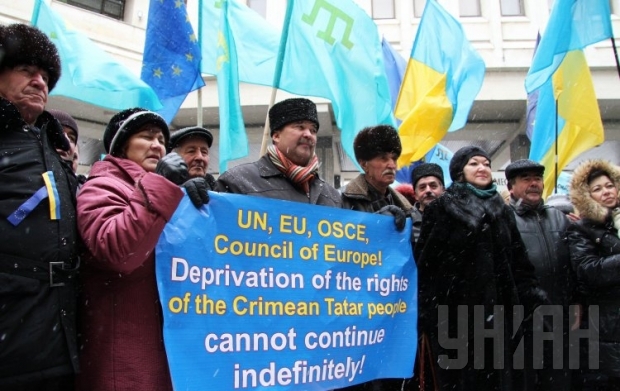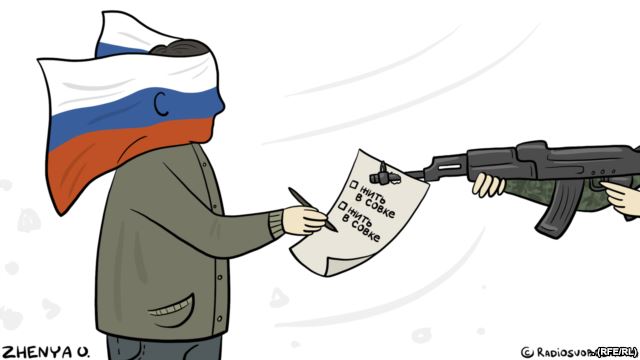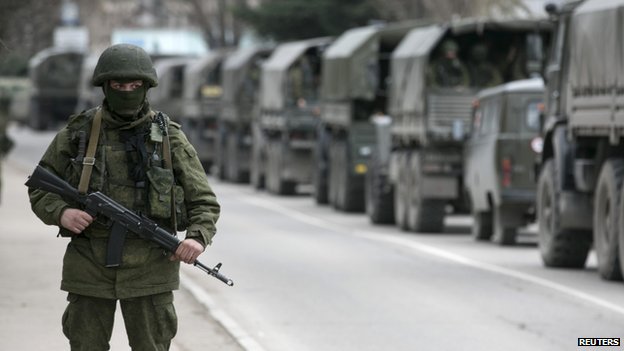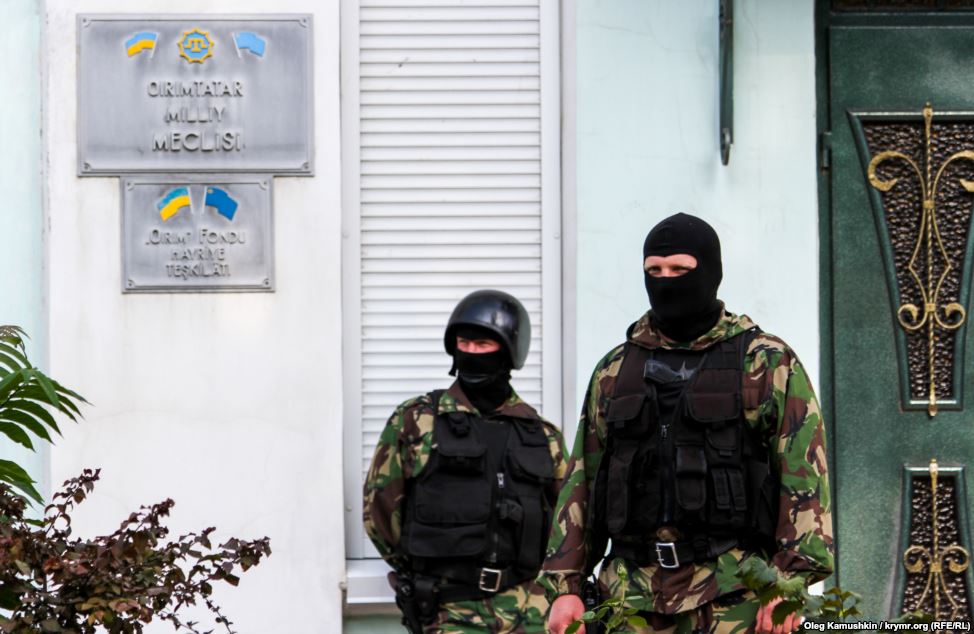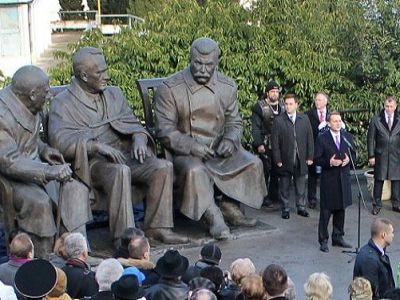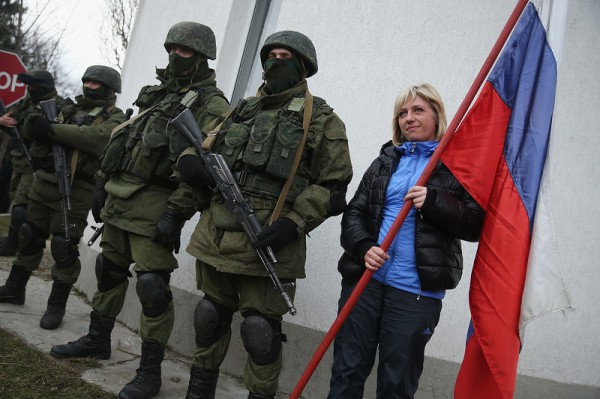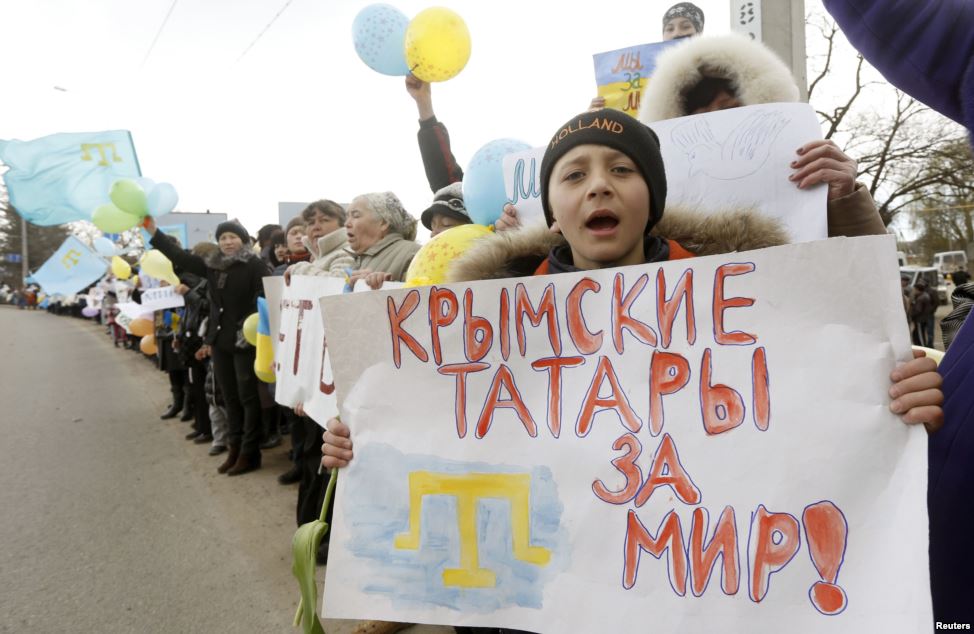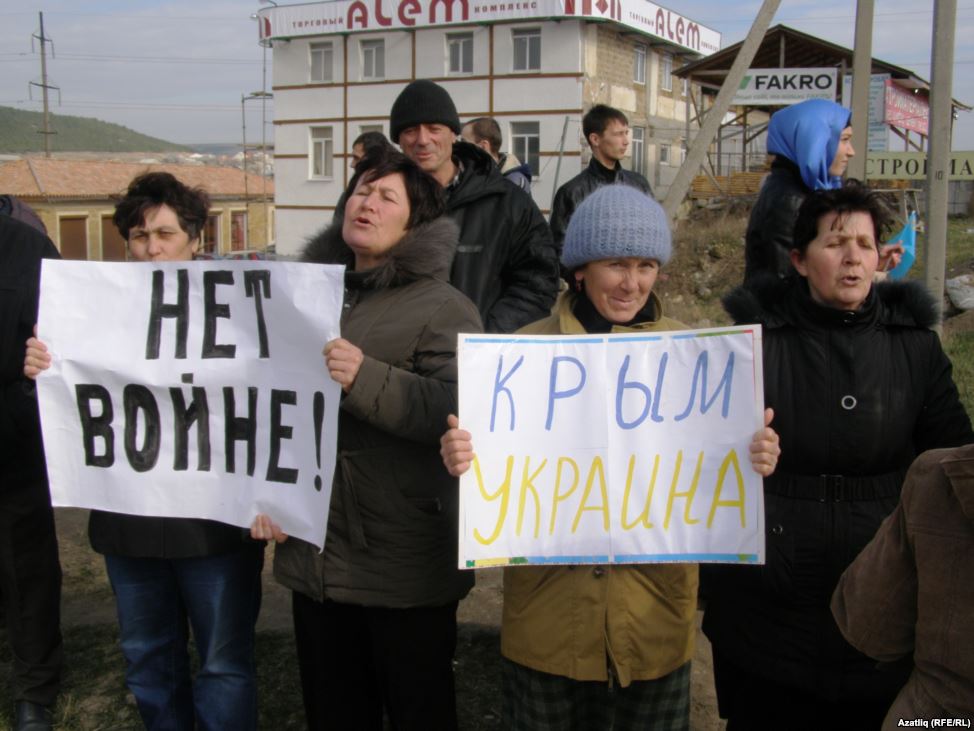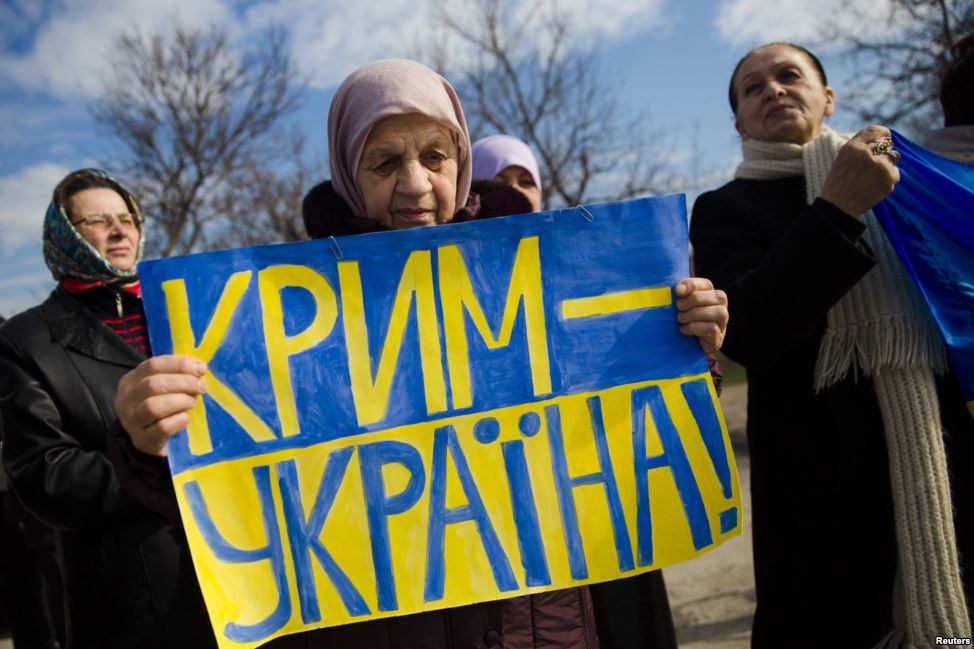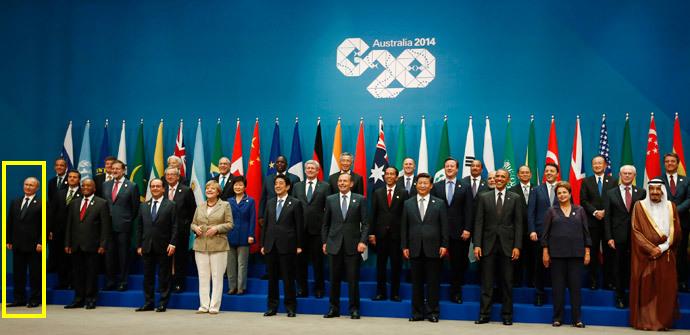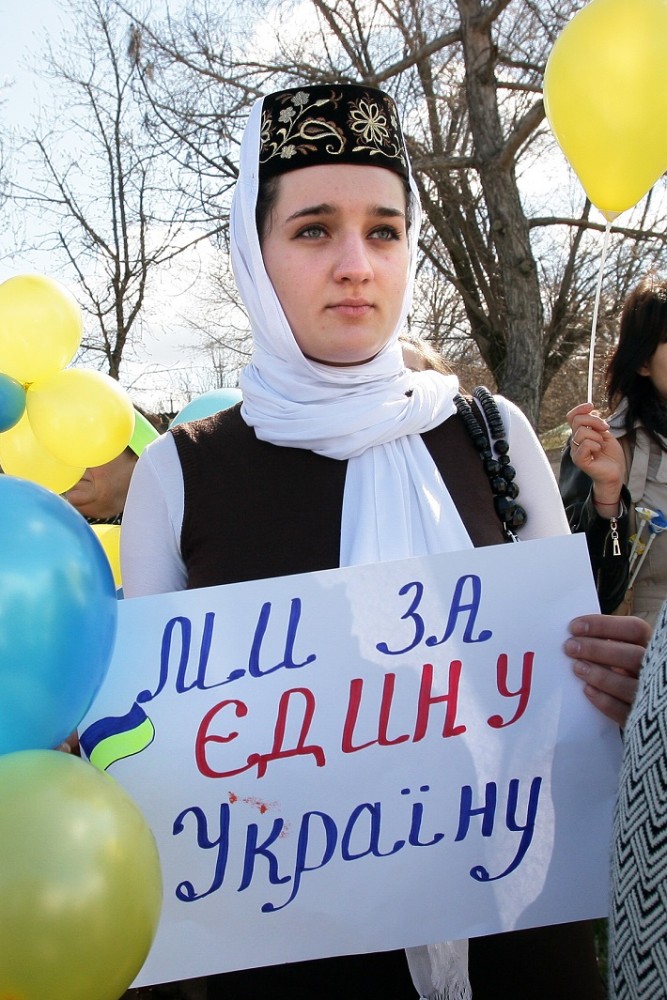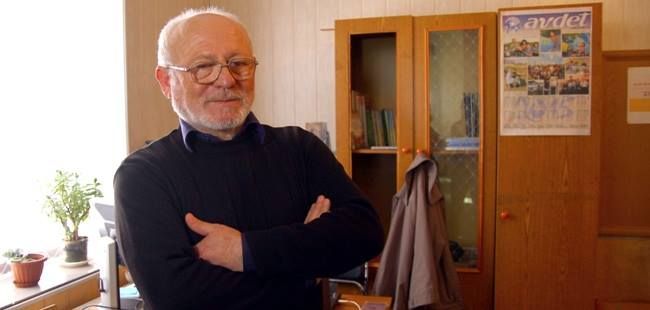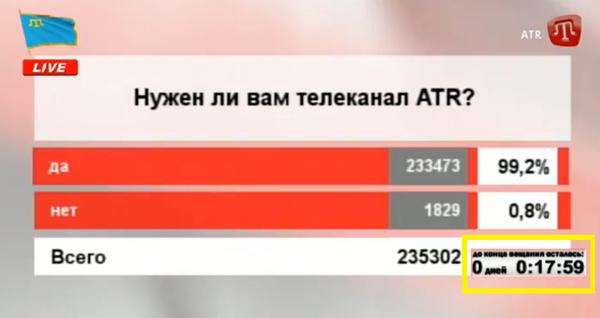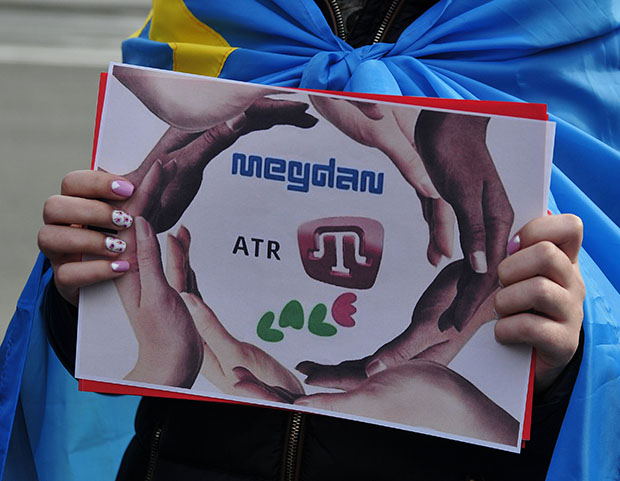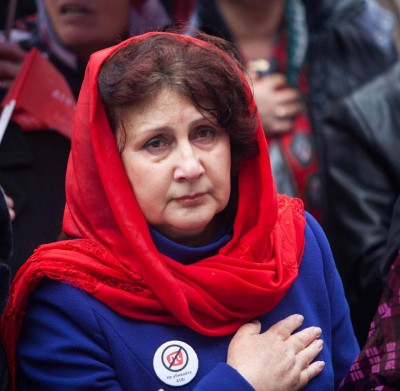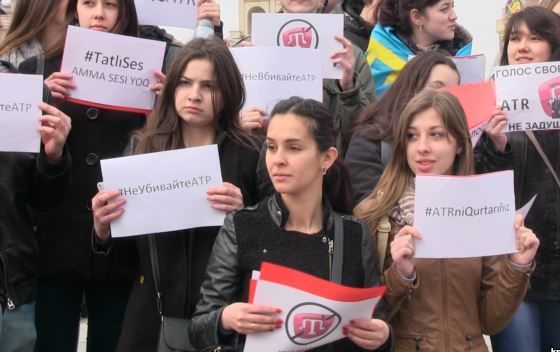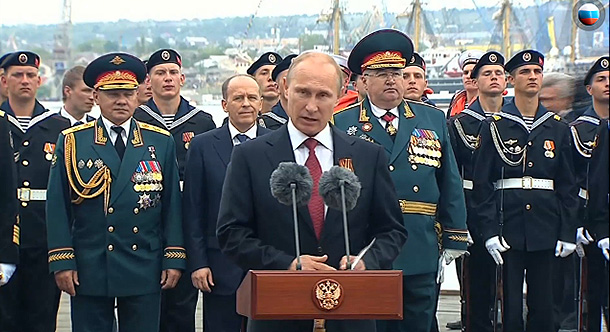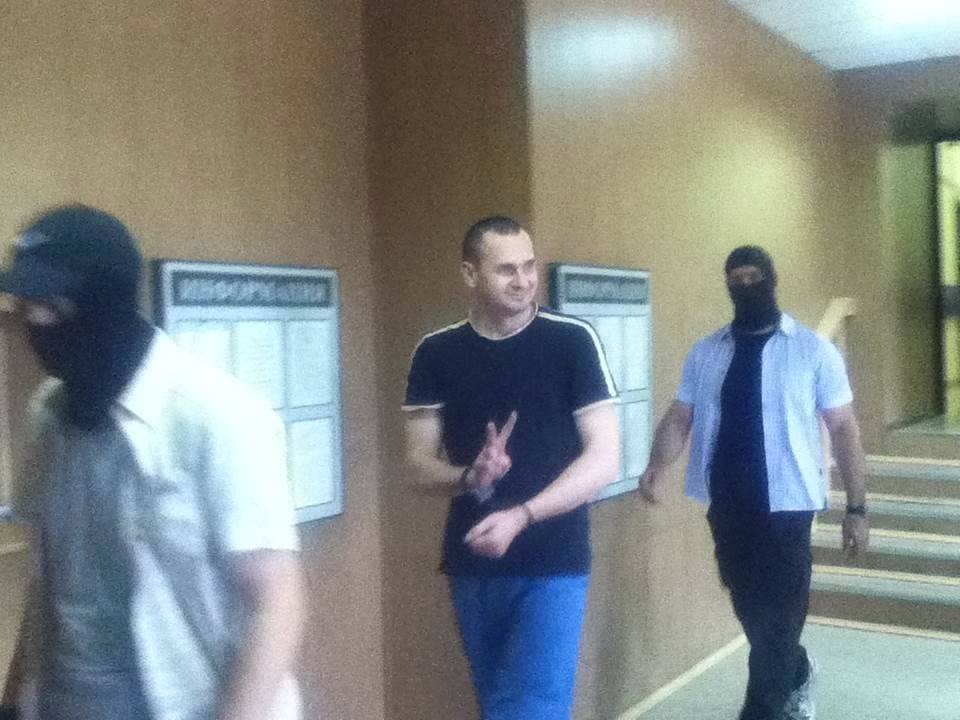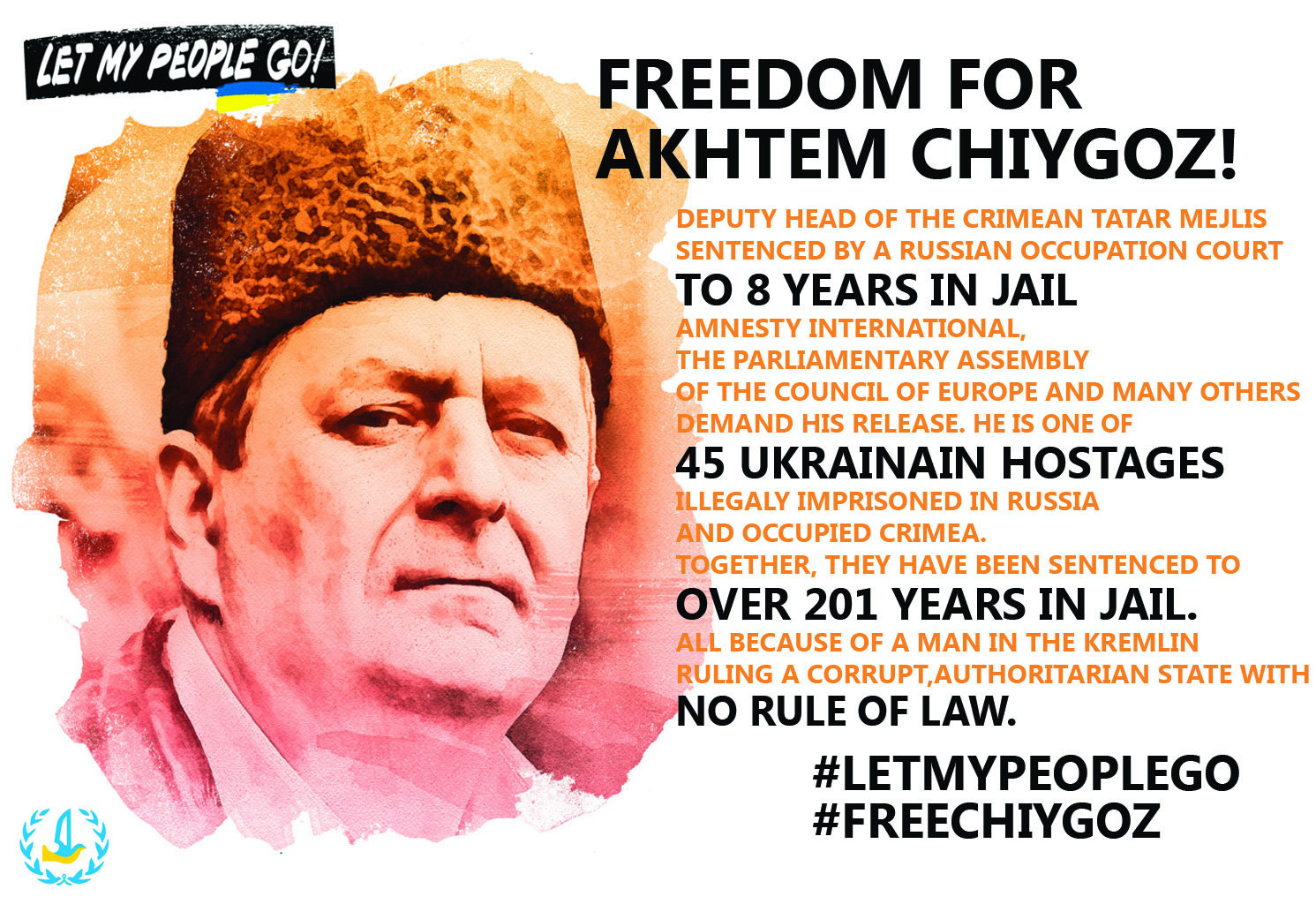The Siemens corporation is in danger of wandering into a gray area: Generators from Siemens are to be installed in a plant near Crimea. Observers are therefore accusing Siemens of breaching the EU sanctions.
The headline was vocal: “Siemens is delivering turbines for power stations in Crimea,” reported the Russian newspaper “Vedomosti” on Tuesday. As reported by the financial newspaper, which is know for its solid reputation, the St. Petersburg-based Siemens subsidiary “Siemens Technologii Gasovych Turbin” is delivering four steam gas turbine systems, each with an output of 235 megawatts, to the Russian state-owned company “Technopromeksport.”
The turbines are supposedly destined for a new power plan near Taman in the Russian region of Krasnodar. But this is a formality to evade EU sanctions implemented against Crimea, which was annexed by Russia in March 2014. These ban, among other things, the supply of products related to energy production to Crimea. In fact, the Russian side reportedly wants to deliver the Siemens turbines to Crimea and install them there.
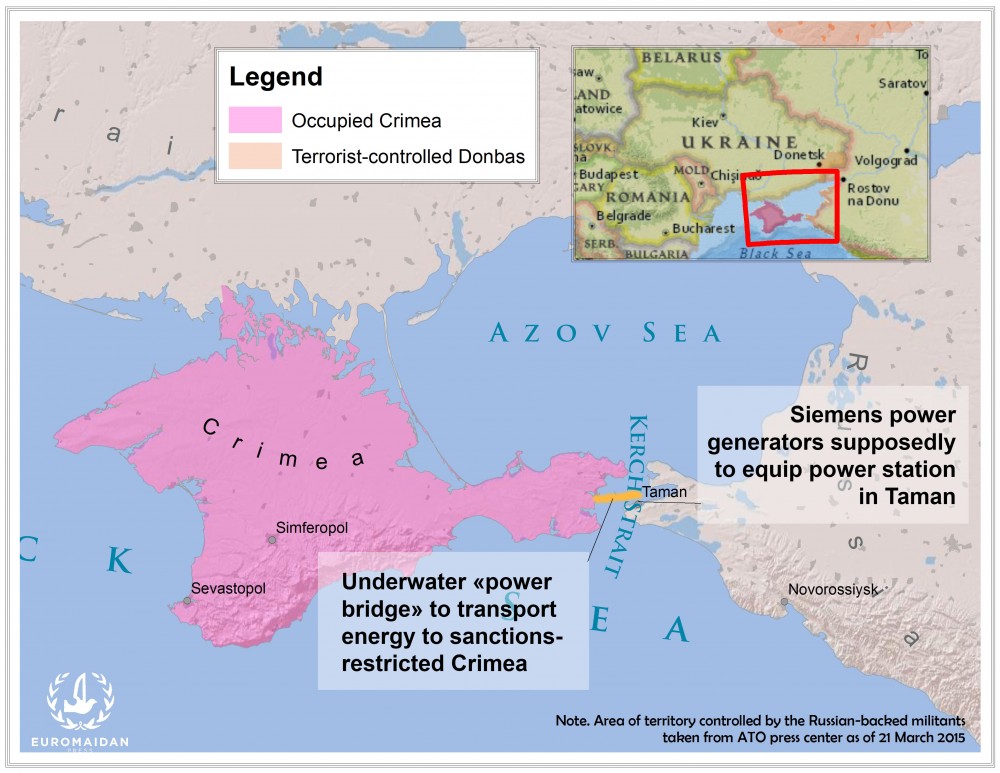
Power Bridge planned for Crimea

Denials came immediately: First, Technopromeksport assured that the turbines in question were designated for the Krasnodar region. And a Siemens spokesperson told the FR (Frankfurter Rundschau, this paper – Ed.) that media reports indicating that Siemens is delivering technical goods to Crimea were incorrect. “We have no reason to believe that the gas turbines mentioned by the media are being considered [for delivery] to Crimea.” According to the spokesperson, Siemens respects the decisions taken with respect to sanctions and will “of course” comply with the rules set out by the current sanctions.
All that apparently remains is speculation about whether the Russians are actually callous enough to ship the Siemens turbines across the Kerch Strait to Crimea, in contravention of all contractual obligations. Even if that happens, Russian experts see it as questionable whether Siemens will be held accountable. According to Russian property law, a supplier is not permitted to apply any restrictions on its buyer, said Nikolai Zaichenko, a corporate lawyer. “[The supplier] cannot forbid the further sale or delivery to other regions.”
However, as confirmed by the Siemens spokesperson, the turbines are planned for a power station to be built near the coastal town of Taman in the Krasnodar region, which is only 20 km from the Crimean port of Kerch. The Moscow newspaper “Kommersant” reported in January that the [Russian] Energy Ministry is planning a power station near Taman with an output of 660 megawatts.
Its main purposes are to secure power supply for the still to be constructed port of Taman – but primarily power for Crimea, to be transported through a “power bridge” on the sea floor of the Kerch Strait. Power transmission at a strength of 500 kilovolts is being considered in order to improve Crimea’s electricity supply, energy minister Alexander Novak told the news agency Itar-Tass last year. The required generators were to be installed on the Taman peninsula. A planned 600-megawatt power station near Novorossiysk is also intended to supply Crimea.
“That violates the sanctions”
[In Crimea] people are eagerly awaiting the power sent through the new undersea cable since the peninsula still depends on Ukraine’s electricity network, which supplies around 80% of its power. Just a few days ago, Kyiv threatened to cut off power to the separatists.
It could occur that the Siemens turbines are not operated in Crimea but instead produce electricity for Crimea from 20 kilometers to the east. There are already numerous observers who are accusing Siemens of not respecting the boycott. “That violates the sanctions,” stated Mustafa Dzhemilev, a Crimean Tatar member of the Ukrainian parliament. “There is no need for new power plants on the Taman peninsula or anywhere else in Krasnodar; it’s obvious that this power is going to Crimea.” Unfortunately its own profits are more important to the company than the territorial integrity of Ukraine, according to Dzhemilev.
In any case, Siemens is in danger of falling into the gray area that Russia and its state-owned companies occupy in order to, despite the sanctions, acquire foreign technology for future energy infrastructure in Crimea.
Related: Siemens set to violate sanctions regime, helping build power stations in Crimea



